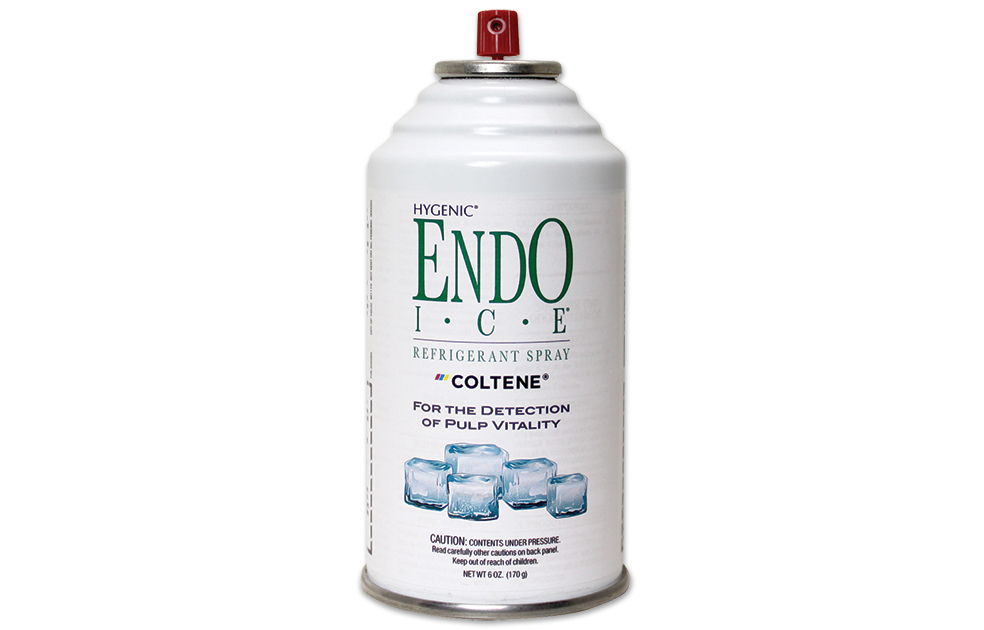Endodontic Diagnostic Tests: Cold, Pressure & Sensitivity Explained
Patients often ask about the diagnostic tests we perform to understand what’s happening inside their teeth. Since the root canal system is tiny and complex, endodontists rely on a combination of tests to pinpoint the source of pain.
Two of the most common — and most useful — are the cold test and the percussion (tapping) test. These simple, in-office evaluations help us decide if a tooth requires root canal therapy, retreatment, or another solution to save your natural tooth.
The Cold Test: What It Reveals
A cold test involves applying a cold spray (such as Endo Ice) to an applicator and placing it on the tooth surface for a few seconds. The patient’s reaction helps us evaluate pulp vitality.

Possible responses include:
- Normal response: A short-lived, sharp sensation that subsides quickly — healthy pulp.
- Prolonged response: Lingering discomfort, often indicating pulp inflammation or early infection.
- No response: May suggest necrotic pulp or a previously treated tooth.
Although it can cause brief discomfort, the cold test is invaluable for identifying infection and determining whether a root canal may be necessary.
The Pressure (Percussion) Test: What It Reveals
The percussion (tapping) test evaluates the tissues surrounding the tooth — particularly the periodontal ligament. We gently tap the tooth to see if it causes tenderness or pain.
What it can indicate:
- No pain: The tooth and surrounding tissues are likely stable.
- Sensitivity or pain: May point to inflammation, abscess formation, or even a failed root canal.
Pressure sensitivity can also help confirm whether infection has spread beyond the pulp to the supporting tissues.
Why Endodontists Use These Tests Together
- Cold Test: Assesses the vitality of the pulp inside the tooth.
- Percussion Test: Assesses the health of tissues outside the tooth.
Using both tests provides a fuller picture, guiding the decision between retreatment, apicoectomy surgery, or other care options.
Other Diagnostic Tests in Endodontics
In addition to cold and pressure testing, your endodontist may perform:
- Electric pulp testing – A safe, low current checks pulp responsiveness.
- Selective anesthesia – Helps pinpoint referred pain.
- Bite testing – Identifies cracks that may require cracked tooth treatment.
- CBCT scans – Advanced 3D imaging of the tooth and root structure (learn more).
- Visual exams – To detect swelling, infection, or other signs of disease.
When to Seek Endodontic Evaluation
If you experience:
- Lingering sensitivity to hot or cold
- Pain when biting or tapping on a tooth
- Gum swelling, drainage, or pimple-like bumps
- Persistent toothache without clear cause
…these may be signs of pulp disease or infection that requires treatment. Early diagnosis can mean the difference between a simple root canal and more complex treatment.
Why Choose Ballantyne Endodontics?
At Ballantyne Endodontics, we specialize in saving teeth. Our doctors perform diagnostic testing daily to uncover the root of your discomfort and develop treatment plans designed for lasting relief.
We combine compassionate care with advanced technology to give patients the best chance of keeping their natural teeth.
FAQs About Cold and Pressure Tests
Does a painful cold test always mean I need a root canal?
Not always. A lingering response usually means pulp inflammation, but your endodontist will confirm with additional tests.
Why does my tooth hurt when I tap on it?
This usually points to inflammation in the periodontal ligament, often associated with infection or a failing prior root canal.
Are these tests painful?
They may cause temporary discomfort but are quick and safe.
Can these tests be wrong?
Rarely. But restorations, unique anatomy, or previous treatment can influence responses, which is why multiple tests are used.
Conclusion
Cold, pressure, and sensitivity tests may seem simple, but they are essential tools for diagnosing tooth pain and planning effective treatment.
If you’re experiencing persistent sensitivity or discomfort, contact Ballantyne Endodontics today. Our team will get to the root of the problem and protect your natural smile.

